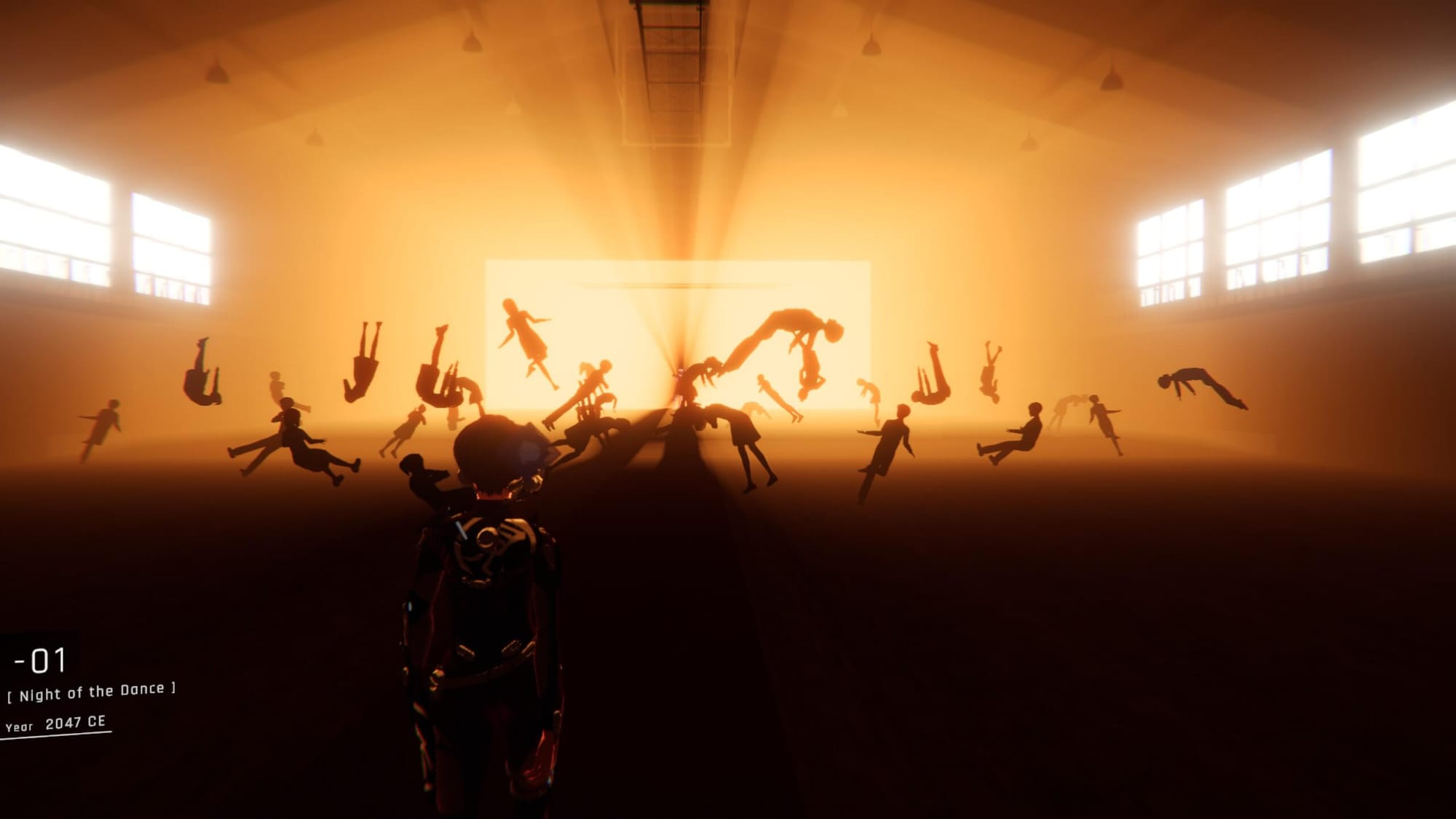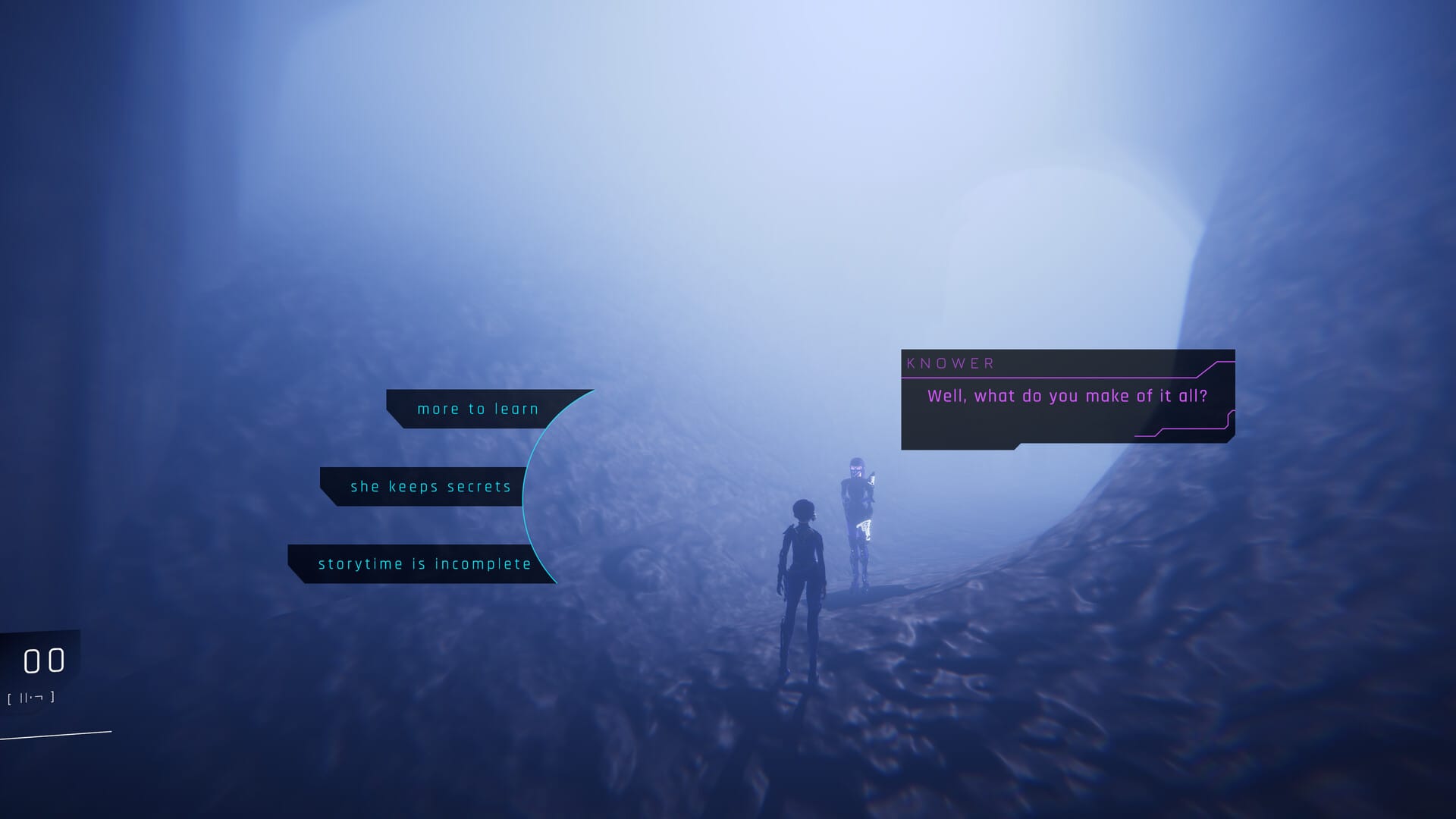Reflections on Trauma, Time, and Memory Through 1000xResist
How 1000xResist explores the philosophical ramifications of past, present, and pain


Memory is, ultimately, fallible. We want to believe in the power of our recollections—those precious memories that fabricate our souls, those collected snapshots that represent our traumas, joys, successes, and failures.
We want to believe that our experiences are real.
Moments lost to time can be stitched together through individual and collective memory, aided by recording tools such as smartphones and cameras. Memory is precious to us because, in many ways, it feels like the only true way to believe in the lives we have lived—to revisit experiences that were happy, sad, or life-changing.
Human recollection is a deeply flawed system. Memory is a reconstructive process influenced by factors upon factors, compounded by internal and external stimuli, such as emotional impact, sights, smells, social influences, and personal beliefs. Memory is influenced by education. It's influenced by dogma. Our most traumatic memories often remained buried by our psyches, delivered piecemeal by our brains to protect us from terrifying ordeals.
To some extent it feels as though we cannot trust our memories at all; each of us has experienced an argument with a loved one in which our memories of the same event wildly differ. Sometimes a disagreement in recollection can spark a fight. Sometimes it can feel world-ending.
1000xResist makes a point of ripping apart consciousness to remind us of the slipshod foundations beneath us.

Our most traumatic memories often remained buried by our psyches, delivered piecemeal by our brains to protect us from terrifying ordeals.
You know where to find me
Dr. Elizabeth Loftus, a professor at the University of California Irvine, is well known for her studies on memory and how distortion and manipulation can create "false memories" that feel like real experiences. Memory, she says, does not function like a recording device and automatic playback machine—memory is consistently manipulated—it's affected by new information, thoughts, suggestions, ideas, and public recordings like television and newspapers.
Memory is also not as individualized as we want to believe. Human consciousness is frail and easily impacted by internal and external stimuli; shared events can create memories in which the circumstances are influenced by those who we shared these experiences with. Philosophers like Carl Jung believed that the "collective unconscious" or "objective psyche" came from genetic inheritance, not personal experience carved into each tabula rasa.
1000xResist's central conflict rotates around an anchor of memory, its illusory patterns laid bare as it contrasts the perspectives of shared events. The game smartly does away with the necessity of choice, comically reducing the selections to pieces of phrases or titillating the player with an alternative that results in the same linear path. Even to the end, the choices in the game result in a spreadsheet of endings whose meaning will vary from player to player—even as some are left scratching their heads as to the purpose of the whole.
There is a you and an us and a means to us
Science fiction stories, and even some modern studies and technologies, would have us believe in the possibility of memory recording. In 2020, scientists at the NIH Clinical Center conducted a study that seemed to enforce the idea that our brains record memories in "neural firing patterns," not unlike how vinyl records store music in their grooves. “Our results support the idea that memories involve coordinated replay of neuronal firing patterns throughout the brain,” said Dr. Zaghloul. “Studying how we form and retrieve memories may help us understand ourselves and how neuronal circuits break down in memory disorders.”
Can we trust our memories? When it comes to recollection, how important is the machine's accuracy of what we remember? What of us is formed by "true memory" and what portion of our personalities are formed around reactions to traumatic events and not the events themselves?

The game smartly does away with the necessity of choice, comically reducing the selections to pieces of phrases or titillating the player with an alternative that results in the same linear path.
1000xResist is a story about survivor's guilt, dogmatic groupthink, flawed recollection, and an ever-shifting past shaped by mistakes, generational sins, and individual traumas. It posits that memory is even less dependable than we believe, its foundations built on quicksand whose walls constantly shift in and out of space and time.
It is a game that moves in and out of shared memory, its nonlinear moments passing back and forth along scenic tracks that range from deeply personal to cataclysmic. As Watcher delves into the history of the ALLMOTHER, she must confront the cosmic giants that stand at the intersection of truth and lie, making her own choices along the way and dealing with the fallout of their world-changing consequences.
Haunted by a place that doesn't exist
I am, if anything, an evangelist for the things I love.
Before playing 1000xResist, a good friend cautioned it would become "a part of my personality." Disco Elysium, Baroque, Koudelka, Xenosaga, Signalis, Death Stranding—I habitually absorb the games that foundationally impact my soul.
As a writer, I cannot help but add these experiences—both personally and materially—to my bank of inspiration, to recall them when I work on short stories, novels, and essays. Immediately upon beating 1000xResist, I knew I had to spread the good word, messaging friends far and wide about the game's impeccable narrative.
I suggested the game to my friend J.
J: "I've never yelled 'oh shit' so loud at a game."
One day later.
J: "This game just like, connected some separate artistic threads in my brain."
Two days later.
J: "I'm realizing that a lot of what I do artistically is so someone will ask me about it and then can gush about my influences..."
There is a quote from 1000xResist that I've seen repeated in its small social spaces, a piece of the Ocuppant's conversation with Watcher in Chapter 4. "There is the you that remains that remains and remains." The game is filled with unusual language—"Hair to Hair" and "Hekki Allmo" and "Red to Blue." All these sayings have meanings, and all of them come back again. But "the you that remains that remains and remains" sticks in the player's mind, a combination of linguistic repetition and philosophical prodding.
1000xResist is built upon repetition and recollection. It is also a game about myth-building and the importance of belief. Safe in their Orchard, the sisters want to believe that Iris, their ALLMOTHER, is waging war against the despicable Occupants that have ruined the world. Each sister is coded with purpose and place, and Watcher's days revolve around interpersonal investigations and truncated time travel. Faith and identity are paramount to the sisters, a ragtag collection of clones, who wield their authority with severity. Order is the glue holding this future together, and as with most religions and fascistic governments, their fragility can be exposed by the people they serve.
While the Allmother is something of a tyrant, her allowances stem from her experiences as a young girl, and she makes the grave mistake of allowing her clones to partake in art. Fascist governments button down art and entertainment over time, knowing that creativity is the ploy of the meager, and that revolution is born not just from disparity, but from yearning. "From each according to her ability, to each according to her needs," says Blue in Chapter 6, quoting Marx, even if she may not know the origin of the saying. When Blue becomes part of the revolution against the Provisional Government, it is not because she is some great revolutionary or messianic figure. She is simply part of the majority that cannot abide by control and injustice.

As a writer, I cannot help but add these experiences—both personally and materially—to my bank of inspiration, to recall them when I work on short stories, novels, and essays.
Indie video games like 1000xResist bear the unique opportunity to be about more than their mainstream counterparts. Sephonie, by Melos Han-Tani and Marina Kittaka, utilizes its time to delve into the twin histories of Japan and Taiwan. It examines how Taiwanese people are perceived internationally, and the challenges immigrants face to achieve equity and prestige in an unfair world. 1000xResist explores the traumas of China and Hong Kong, focusing mostly on the 2019 Hong Kong riots and their aftermath. It is a game where trauma is never relinquished but passed on and transformed, and the fractal elements of these sins carry over into the new world no matter how many times it is created.
1000xResist is a game of different worlds and realities. Like many game narratives that heavily feature philosophy, it delves into solipsism and how individuals formulate their internal worlds built from perception, experience, and trauma. The game's first violent event—Watcher stabbing the Allmother in the back—is met with surprise from the player and the affected characters. Watcher cannot understand how Allmother has let so many terrible things come to pass, and the Allmother is shocked that she could not see it coming, though perhaps she is also wondering why her death took so long.
These disparate perspectives forge a brittle chain of memories, where things are not what they seem.
Are we destined to reflect until we dissipate?
We return to memory because it is our only anchor to the past. We cannot trust our eyes and ears, and in an era where things are so easily manipulated and perverted, it's tough to separate the real from the unreal.
1000xResist is a story built on lies. Lies beget pain, beget failure, where the labyrinth's core does not contain an answer that can help us, and instead functions to obscure the journey. The black box remains firmly shut, its secrets inferred by environmental storytelling and narrative suggestion.
In a game that contains every science fiction trope both familiar and not, I cannot help but compare it to 13 Sentinels, which feels both eerily familiar and achingly new. Recently I played Ender Magnolia, and while the game references NieR: Automata with frequent abandon, it still felt like its own story born within its world. Narratives of unrelenting sincerity feel like a revelation because they do not lampshade their artifice, and instead focus on being clever, compelling, and true.

1000xResist is a story built on lies. Lies beget pain, beget failure, where the labyrinth's core does not contain an answer that can help us, and instead functions to obscure the journey.
The emotional beats in 1000xResist hit hard because they do not pull their punches. You cannot create a good story if you continually consider an imagined audience—the author must offer themselves to the indulgent real.
As with NieR: Automata, part of what makes 1000xResist so compelling is that its story rests in a post-human world. We do not have to pretend at the pains of our lives in 2025—millennials like me, especially, are homesick for a place that never existed. It follows that we craft narratives in which human beings are an afterthought, or where lessons must be learned and sins must be carried by entities long after we are gone.
The memories that Watcher is forced to revisit through the Allmother are unhappy. Learning how Iris became the Allmother is the crux of the game–scenes that extend to the narrative's final moments play out with cruel abandon. Iris and her parents have a complex, messy, and dispiriting relationship, that might be a little too familiar for some. The themes of immigration, communalism, and revolution mirrored by the Occupants versus the sisters are not accidental, and the deeply philosophical questions over existence that linger after the credits roll insist upon further reading, the game's sharp dialogue is sometimes too inflated with metaphor.
Again, 1000xResist is a product of the era in which it was written. When I played Metaphor last year, it was smack dab in the middle of our upcoming political upheaval, when many of us were not thrilled with the idea of voting in another Democrat but could not stomach the Republican option. 1000xResist's politics are about the people versus the government, both in the various Allmother eras and the Hong Kong revolution of 2019. There is a bit of familiarity in the timetables as well—for those of whom Covid is still a distinct nightmare, 1000xResist lays it on thick with a pandemic that ends the world just in time for it to be subjected to the ambivalent aliens that incited it.
Do memories last? If everyone who ever lived was gone in an instant, what remains? What can tell the stories of our individual lives? Do we remain individuals, or do we become part of the great unified whole, ghosts whose representations are meted out by the objects we left behind?

As with NieR: Automata, part of what makes 1000xResist so compelling is that its story rests in a post-human world. We do not have to pretend at the pains of our lives in 2025—millennials like me, especially, are homesick for a place that never existed.
Together then? ...Into the future.
I want to believe that I matter.
I am selfish. I am small. I focus on the wrong things as life passes me by. My crimes are human ones—I want to be seen, I want to be invisible. I cannot abide cruelty. I relish in pain. My dreams and goals are too often tangled up, one confused for the other as my ambitions get the best of me and I am not left with enough time or energy to accomplish anything of value.
1000xResist's alien race upholds a standard in which human beings are shown to be painfully illogical, and the evolution of our consciousness is a great and terrible mistake. When everything ends, when society crumbles away and all that is left is what we leave behind, I want to know: did I live at all?
1000xResist attempts to break down the messy construct of life. The journey of the sisters, of Watcher, of Iris, of Jiao, mother, father. The nameless, faceless people who die due to the callous cosmic macro-perspectives of the Occupants. This tapestry of memories and perspectives weaves in and out again, crafting the only thing that remains and remains.
We hunt for someone to blame for our troubles. Is it Iris, or her as the Allmother? Are Iris' mother and her lethal stoicism responsible for all of our pain and trauma? What about the Occupants? Or maybe it's the soldiers just following orders? What do the sins of the father—or mother, in this instance—mean in a society of rising fascism? Do those in power always fall, making mistake after mistake to justify their actions?
The enemy is time. We do not have enough of it.
As Secretary guides us through the macrocosmic ennui of the Occupants and we are forced to cede the Instrumentality of everything, 1000xResist's final weighted choices are all based on memory—what do we take with us, and what do we leave behind?
